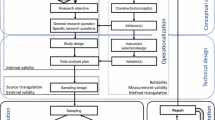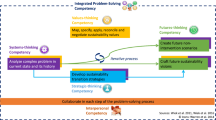Abstract
This essay describes the inequity faced by most interdisciplinary environmental and sustainability (IES) degree programs and the impact of that inequity on student and faculty experiences. Despite the urgent need for IES education and research to solve critical environmental and sustainability challenges, as well as high demand for IES education by students and employers alike, we illustrate and discuss how the majority of IES programs suffer from limited resources or unequal standing relative to the traditional disciplines. Traditional disciplinary departments, which dominate university structures and were created decades before most IES programs, often have a monopolistic grip on hiring, firing, and the tenure-granting process. We argue universities must structurally reform to support IES programs, given that this disciplinary silo problem is so deep-rooted and restrictive. We assert the urgent need for equivalent autonomous status and equivalent resources for IES programs, preferably as schools, colleges, and institutes or centers that have core interdisciplinary faculty and draw upon resources across the university, or for smaller schools as IES departments. We also strongly support initiatives to more effectively support the integration of IES knowledge across all higher education curricula. We conclude with a list of recommendations we believe are necessary to support IES higher education.

Similar content being viewed by others
References
Bureau of Labor Statistics, U.S. Department of Labor (2014). Occupational Outlook Handbook 2014-15, See Environmental Scientists and Specialists. http://www.bls.gov/ooh/life-physical-and-social-science/environmental-scientists-and-specialists.htm.
Capaldi E (2009) Intellectual transformation and budgetary savings through academic reorganization. Chang: Mag High Learn
Carnevale A P, Cheah B (2013) Hard times: college majors, unemployment and earnings. Georgetown University Center on Education and the Workforce
Kajikawa Y (2008) Research core and framework of sustainability science. Sustain Sci 3:215–239
Lin J, Mooney H, Hull V, Davis SJ, Gaskell J, Hertel T, Lubchenco J, Seto KC, Gleick P, Kremen C, Li S (2015) Systems integration for global sustainability. Science 347(6225):963
National Academy of Sciences (2013) Sustainability for the nation: resource connection and governance linkages. National Academy Press, Washington DC
NSF AC-ERE (2009) Transitions and tipping points in complex environmental systems. National Science Foundation, Washington, DC
Pfirman and the AC-ERE (2003) Complex environmental systems: synthesis for earth, life, and society in the 21st century. National Science Foundation, Washington, DC
Pfirman S, Martin P (2010) Facilitating interdisciplinary scholars. In: Frodeman R, Klein JT, Mitcham C (eds) Oxford handbook of interdisciplinarity. Oxford University Press, Oxford, pp 387–403
Pfirman S (2011) Interdisciplinary hiring and career development: guidance for individuals and institutions. National Council for Science and the Environment, Washington, DC
Princeton Review (2014) The Princeton review college hopes and worries 2014 survey report. TPR Education IP Holdings, LLC
Snyder M (2015) Driving better outcomes: typology and principles to inform outcomes-based funding models. White paper: HCM Strategies.
Vincent S, Bunn S, Stevens S (2012) Interdisciplinary environmental and sustainability education: results from the 2012 census of U.S. four-year colleges and universities. National Council for Science and the Environment, Washington, DC
Vincent S, Dutton K, Santos R, Sloane L (2015) Interdisciplinary environmental and sustainability education and research: leadership and administrative structures. National Council for Science and the Environment, Washington
Vincent S, Focht W (2009) U. S. higher education environmental program managers’ perspectives on curriculum design and core competencies: implications for sustainability as a guiding framework. Int J Sustain High Educ 10(2):164–183
Vincent S, Focht W (2010) In search of common ground: exploring identity and the possibility of core competencies for interdisciplinary environmental programs. Environ Pract 12(1):76–86
Vincent S, Mulkey S (2015) Transforming U.S. higher education to support sustainability science for a resilient future: the influence of institutional administrative organization. Environ Dev Sustain 17(2):341–363
Vincent S, Santos R, Cabral L, Sloane L, Bunn S (2014) Interdisciplinary environmental and sustainability education: results from the census of community colleges. National Council for Science and the Environment, Washington, DC
Author information
Authors and Affiliations
Corresponding author
Additional information
The views expressed in this essay by Shirley Vincent are her own and do not represent the views of the Center for Environmental Education Research or the National Council for Science and the Environment.
Rights and permissions
About this article
Cite this article
Vincent, S., Roberts, J.T. & Mulkey, S. Interdisciplinary environmental and sustainability education: islands of progress in a sea of dysfunction. J Environ Stud Sci 6, 418–424 (2016). https://doi.org/10.1007/s13412-015-0279-z
Published:
Issue Date:
DOI: https://doi.org/10.1007/s13412-015-0279-z




